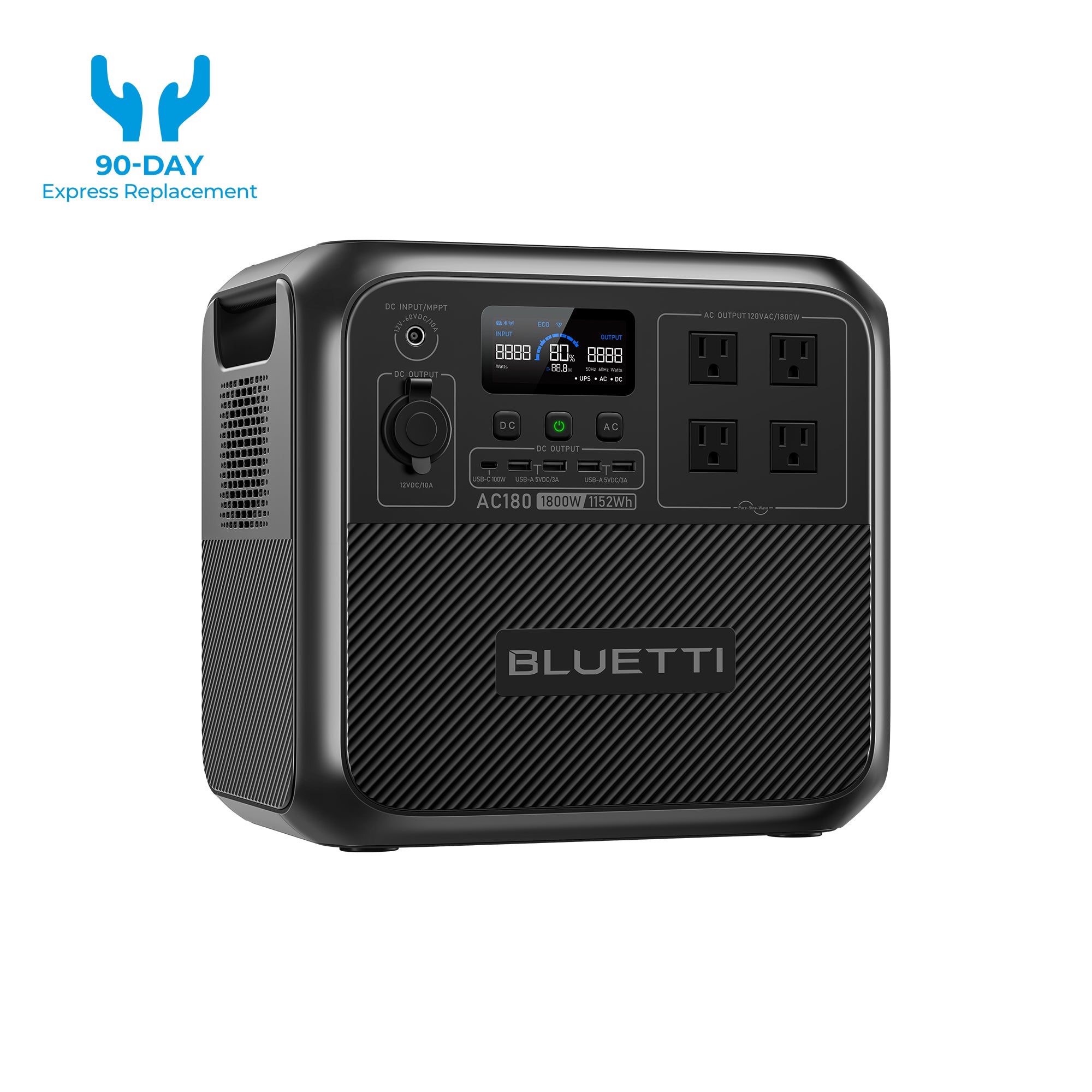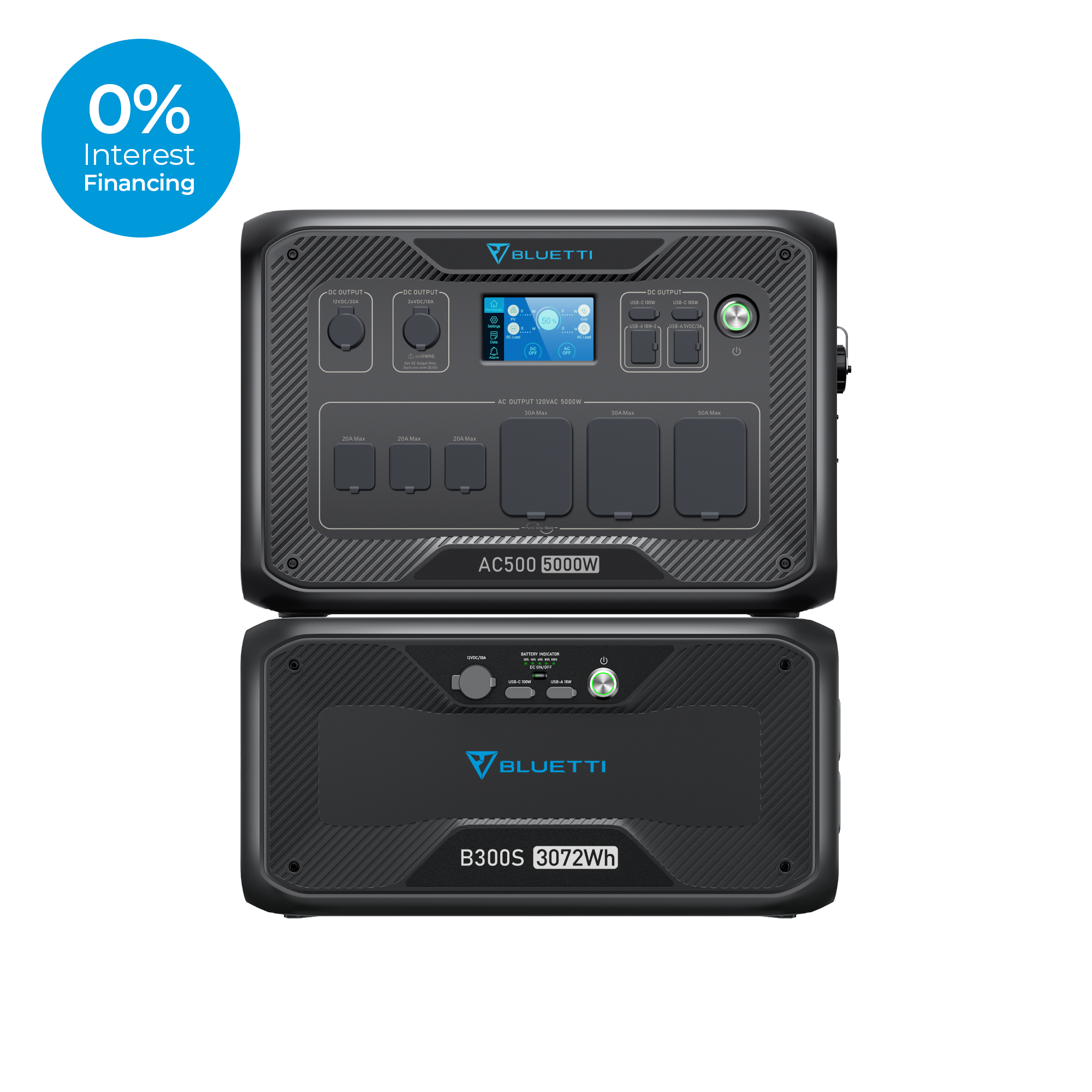In emergencies, having a reliable power source is crucial. LPG (Liquefied Petroleum Gas) generators have proven to be a dependable source of backup power. Compared to gasoline or diesel, propane has a longer shelf life, is readily accessible, and burns more cleanly. During a power outage, knowing how long your generator can run on propane is essential for planning.
Several factors influence a propane generator’s runtime, including tank size and load. In this post, we will explore all these factors to help you make the right plans and ensure you have the power you need when you need it.
Without further ado, let's dive straight in!
Run Time Calculation: Estimating Propane Generator Runtime
To estimate how long your generator will run on propane, you need to consider its fuel consumption rate and the size of the propane tank. A lot of manufacturers will offer a fuel consumption rate in pounds per hour or gallons compared to different load levels. Here are the steps you can use to estimate fuel consumption rates.
Finding the Fuel Consumption Rate
Look for the propane usage specifications written somewhere on the generator. For instance, you may find a 5000-watt generator will consume about 5 pounds of propane per hour if it's running at 50% load.
Check the Tank Size

Propane is measured in pounds or gallons. A 20-pound propane tank, which is often the standard size, holds about 4.7 gallons of propane. Larger cylinders like the 100-pound one will offer around 23.6 gallons.
Calculating Run Time
To calculate runtime, you’ll need to use the formula:
Runtime = Tank Capacity (gallons) ÷ Fuel Consumption Rate (gallons per hour)
For example, for a 4.7-gallon or 20-pound tank running a generator that consumes 1.2 gallons per hour, you can estimate the run time to be:
4.7 ÷ 1.2 ≈ 3.9 hours
Keep in mind that the higher the load, the higher the fuel consumption, thus a reduced runtime. Check the generator manual for the exact specifications. Understanding such calculations ensures that you will always be prepared for any situation.
Table: Propane Runtimes for Generators of Different Sizes
|
Generator Size (Watts) |
Fuel Consumption Rate (Gal/Hour @ 50% Load)* |
20-Pound Tank Runtime (Hours) |
100-Pound Tank Runtime (Hours) |
500-Pound Tank Runtime (Days) |
|
2,000–3,500 |
0.5–0.8 |
6–9 |
29–47 |
~7 |
|
5,000–7,000 |
1.2–1.9 |
2.5–4 |
12–20 |
~4 |
|
10,000–20,000 |
2.0–3.8 |
1–2 |
6–12 |
5–10 |
*50% Load Assumption: The runtimes are estimates based on a 50% load. Actual runtimes will vary depending on the load (higher load = shorter runtime).
What Affects Propane Generator Runtime?
There are a couple of factors that will influence just how long a generator will be able to run on propane. By understanding these influencing factors, you’ll be able to plan for your needs much more efficiently.
1. Power Load
The more appliances you connect to the generator, the greater the power load and power requirements, and the less time the generator will run on a specific amount of propane. Simply put, if you run 5000 watts worth of appliances on a 5000-watt generator, there will be more propane consumption than say connecting just 1000 watts worth of appliances at any given time. You can thus extend runtime by reducing the power load on the generator.
2. Generator Efficiency
Not all generators are built the same, and some are more efficient at running appliances than others. A highly efficient generator will be able to derive more power from propane gas and vice versa. Take an inverter generator, for instance. This will be able to adjust the engine speed based on the power demand, making them more efficient compared to conventional models, which run at constant speed.
3. Ambient Temperature

Another factor that affects the performance of propane is temperature. Propane will contract at colder temperatures resulting in less pressure inside the gas tank. If the temperature goes down too far, the generator may struggle to pull propane out of the gas, which will thus reduce runtime.
When temperatures drop too low, the propane inside the gas tank remains in its liquid state and does not vaporize. To be able to convert from liquid to gas, propane requires heat. However, due to the cold temperatures, the lack of vaporization means that the propane generator struggles to pull enough of the gas, causing starting issues or inefficient operation.
It is best to keep the propane tank in a temperature-controlled environment.
4. Propane Tank Size and Pressure
Of course, a larger capacity propane tank will provide the generator with more run time. However, the pressure levels, as we’ve already mentioned, also affect the generator runtime.
Tank pressure goes down as more propane is used up. This is because the vaporized propane will deplete much faster than the liquid propane can evaporate creating an imbalance. As a result, the cooling effect, known as Joule-Thompson cooling, slows down the vaporization, which further reduces the pressure in the propane gas.
As a result of the low pressure, fuel flow is restricted resulting in inefficient running of the generator. If the pressure gets too low then the generator might shut down before completely using up the propane gas.
5. Altitude
There are reduced oxygen levels at higher elevations, which will then affect the combustion efficiency of the generator. A lot of generators will reduce their power out at high altitudes. Which in turn increases fuel consumption.
You can increase your generators efficiency by understanding the factors that influence propane generator run time thus making sure you have a steady power supply whenever you need it.
How Long Will Different Generators Run on Propane?
If you want to have a better understanding of just how long propane gas will run, let's have a look at a few real-world examples that are based on different generator sizes and propane tank capacities.
1. Small Portable Generator (2000-3500watts)

-
Fuel consumption rate: 0.5 to 0.8 gallons per hour at a 50% load.
-
20-pound propane tank: 6-9 hours of run time
-
100-pound propane tank with 29-47 hours of continuous running.
You can use the smaller generators to power appliances like fridges to small air conditioning units. But note that the fuel consumption will rise.
2. Large Standby Generator (10000-20000 watts)
-
Fuel consumption: 2.0 to 3.8 gallons per hour at 50% load
-
20-pound propane tank lasts: 1-2 hours
-
100-pound propane tank: 6-12 hours
-
500-pound propane tank: 5-10 days
These generators can be utilized as a power backup for the whole house. They need large propane tanks to supply power for extended periods and even during long power outages.
Supplements to Propane Generators
While propane generators are dependable, they do have some limitations, such as reliance on fuel availability and noise. For a more sustainable, silent, and maintenance-free power solution, pairing with solar generators can effectively reduce reliance on fuel and eliminate noise.
1. Solar Generator

Solar generators can provide renewable, silent, as well as emissions, and can help reduce the reliance on propane. These harness the sun’s energy to provide electricity. They thus have solar panels, a storage system, often a battery, and an inverter. Granted, they may not provide the high wattages found in propane generators, but they can still help power essential devices such as phones and lighting, as well as small appliances. They can offer charging during the day and ensure continuous power supply, allowing one to switch to solar generators during the night.
Their greatest advantage is that they use renewable energy, as the solar panels will keep recharging the generator without the user having to worry about fuel. Getting a top-quality solar panel such as the Bluetti 350W Solar Panel can help improve efficiency.
The BLUETTI 350W Solar Panel is an excellent companion to any emergency power setup. The panel's 33V/9.2A output and MC4 connectors make it adaptable for use with most power stations on the market, seamlessly integrating into your energy system—whether it’s BLUETTI or another brand.
2. Portable Power Stations

These are battery units that can store charge for later use. There are multiple ways by which you can charge a portable power station, such as via the wall outlet, solar panels, or car chargers.
They can help provide backup power and act as a supplementation of the propane generator. They can help run small devices and help reduce the overall load, which then helps to conserve fuel. Portable power stations come in a variety of sizes and capacities to fit every budget, making them a versatile tool to have.
They feature multiple charging ports, which means you can charge multiple devices simultaneously. Portable power stations that have solar panel integration, such as the Bluetti AC180, also mean that you can take advantage of renewable energy, proving highly useful during prolonged outages. They also offer fast charging. For instance, the AC180 can recharge from 0-80% in just 45 minutes using a 1,440W AC input.
Unlike propane generators, the Bluetti AC180 offers clean, maintenance-free, and silent energy. With 1,800W of constant AC power and a 2,700W Power Lifting Mode, the AC180 is capable of supporting the most common household appliances and even high-powered devices like space heaters, hair dryers, and electric kettles. Equipped with 11 output ports and even a wireless charging pad for phones, the AC180 ensures compatibility with virtually any device.
3. Hybrid-Power Approach

When you experience long power outages, it pays to have a combination of a propane generator with a battery or solar usage to help provide you with continuous electricity. You can choose to use the propane generator for your high-power needs, while solar as well as battery backups such as the Bluetti AC500 handle other energy needs.
It offers clean, silent, and emission-free energy, and with a modular battery system, it offers expandable capacity. Its solar integration on the other hand ensures sustainability.
With a massive 5,000W AC output and the ability to handle high startup demands, the AC500+2*B300K powers appliances like air conditioners, large refrigerators, power tools, and other energy-hungry devices with ease. For heavy-duty applications such as electric stoves or well pumps, achieve 240V output by connecting two AC500 units in parallel. This can help reduce the load on the propane generator and thus help to increase generator run time.
Integration of multiple power backup solutions can help ensure that you get a more stable, sustainable, and fuel-efficient as well as uninterrupted power supply during those extended power outages.
Conclusion
To help ensure that the propane generator is running efficiently whenever you need it, it is essential to conduct regular maintenance and inspection. Check the fluid levels. Filters can help prevent unexpected failures and ensure the generator is running smoothly when you need it. That said, it may not be a wise choice to rely solely on the propane generator. By combining it with alternative power sources such as solar generators, or portable power stations, you can have a more sustainable backup power plan. This will allow you to confidently handle any type of power outage, knowing that you can run all your appliances without any interruptions.








































































